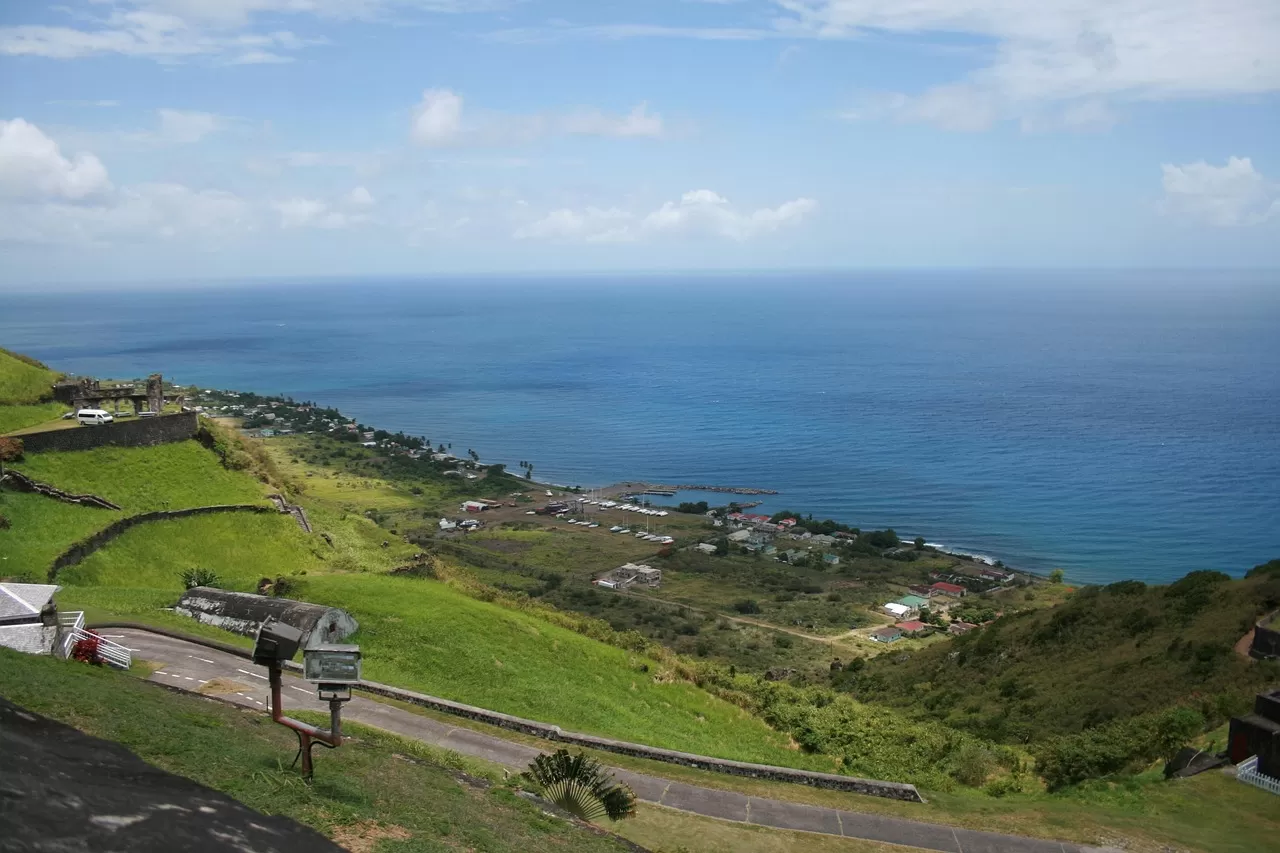A Manhattan apartment costs $1.3 million. A second citizenship costs $90,000. Mathematics has shifted decisively in favor of international diversification, so here is the ultimate investment migration guide for American citizens to show to diversify.
American professionals now allocate half their income to housing, while investment-grade citizenship programs cost less than most people spend on cars. This economic reality has transformed second passports from status symbols into practical financial tools.
When a Greek rental property generates better return rates than American real estate while solving tax complications, when Caribbean banking relationships surpass domestic alternatives, when European residency provides healthcare savings that recover program costs within years, investment migration becomes asset allocation rather than lifestyle indulgence.
The global mobility market has matured into a sophisticated financial architecture. Today’s programs solve specific American problems with precision.
Need EU market access without PFIC nightmares? Greece delivers rental income without foreign fund complications. Planning strategic expatriation while maintaining US business operations? Grenada’s E-2 treaty provides the bridge.
Seeking family education alternatives to America’s debt-fueled university system? Caribbean citizenship unlocks accredited programs at 20% of domestic costs.
The Economics of American Limitation
Traditional American wealth-building formulas have slowed down. The standard playbook of homeownership, 401 (k) contributions, and domestic investments produces diminishing returns while consuming increasing portions of income. Meanwhile, international alternatives often deliver superior outcomes at lower entry costs.
Consider the numbers: US$22,000 annually for family healthcare versus immediate European healthcare access through residency programs. US$200,000+ for four years of private university versus Caribbean citizenship, providing automatic access to accredited programs. US$50,000 annual private school tuition in major cities versus European residency, unlocking world-class education systems.
American banking has become increasingly restrictive for legitimate international activities. Private banking relationships that once served affluent Americans have deteriorated into compliance-focused interactions that limit rather than enhance financial opportunities.
International banking through investment migration programs often provides superior service, broader investment access, and relationship-based management that domestic institutions abandoned years ago.
How to Choose the Right Program for American Citizen?
Investment migration marketing focuses on visa-free travel counts and generic lifestyle benefits. Smart selection requires mapping specific programs against actual American problems.
The difference between choosing fund investments versus real estate programs isn’t philosophical; it’s financial. Fund investments can trigger PFIC reporting requirements that eliminate returns through compliance costs and punitive taxation. Real estate properties generate straightforward income without additional complications.
Banking access varies dramatically between programs. Caribbean citizenship opens private banking relationships with institutions that manage international portfolios professionally. European residency provides access to investment platforms restricted to American investors domestically. These aren’t theoretical benefits; they translate directly into expanded opportunity sets and reduced operational friction.
Estate planning optimization requires understanding which programs create genuine structural advantages versus mere jurisdictional diversity.
Caribbean citizenship can eliminate estate tax exposure for properly structured international assets while maintaining American access through treaty relationships. European residency programs unlock succession planning tools unavailable through domestic structures.
Real estate components deserve evaluation beyond citizenship qualification. Greek properties often outperform American real estate while providing EU residency benefits.
Caribbean developments frequently include resort management programs generating passive income during mandatory holding periods. These investment characteristics matter more than citizenship processing timelines for long-term wealth building.
Caribbean Financial Architecture: Beyond Banking Restrictions
St. Kitts & Nevis: Supreme Private Banking
American private banking shrank sometime between 2008 and 2015, replaced by compliance-focused wealth management that restricts rather than enables international opportunities. St. Kitts & Nevis preserved what American institutions abandoned: relationship-based private banking that actually manages international wealth.
The jurisdiction developed financial infrastructure during decades when American banks were building better customer service instead of international capabilities. Today, St. Kitts private banking relationships offer multi-currency management, international investment platforms, and credit facilities based on global asset portfolios rather than domestic credit scores.
At US$250,000 for citizenship through government contributions, the program is affordable for American investors. Processing completes within four to eight months, typically faster than establishing equivalent high end domestic banking relationships, given current compliance requirements.
The common law framework feels familiar to American professionals while offering asset protection structures and succession planning tools that domestic regulations eliminated. International business operations benefit from extensive tax treaty networks and corporate structures designed for legitimate international commerce.
Family Integration: St. Kitts citizenship extends to dependent children through age 30, creating multi-generational mobility benefits. University of the West Indies access provides accredited education at 20% of American private university costs. Families often recover citizenship costs through education savings alone.
Singles Optimization: Independent decision-making accelerates both application processing and banking relationship establishment. Singles can travel extensively for business, establish regional strategic networks, and optimize international financial structures without family coordination complexity.
Grenada: The Expatriation Insurance Policy
High-earning Americans face a mathematical problem: domestic tax obligations that consume wealth faster than most investment strategies can build it. Traditional expatriation advice involves permanent relocation and complete American relationship severance. Grenada’s E-2 Treaty Investor pathway offers a more sophisticated solution.
Former Americans can operate substantial US businesses, maintain American residences, and preserve family relationships while eliminating worldwide taxation obligations. The E-2 pathway requires legitimate business operations with investment thresholds typically ranging from $100,000 to $200,000, reasonable for successful professionals considering strategic citizenship changes.
Grenada citizenship through government contributions starts at US$235,000, often recovering costs through first-year tax savings for Americans earning over US$400,000 annually. The three-hour flight time from major American cities enables continued business operations and family relationships without the permanent separation that traditional expatriation requires.
This combination solves the expatriation dilemma: eliminating American tax obligations while maintaining practical access to American markets, relationships, and opportunities. The covered expatriate rules become irrelevant when maintaining legitimate business presence through treaty pathways.
Strategic Timing: Americans considering Grenada citizenship benefit from advance planning. The program requires four to six months for processing, providing time for business restructuring and tax planning that successful expatriation requires. Business establishment typically follows citizenship acquisition by six to 12 months.
Estate Planning Revolution: Grenadian citizenship eliminates American estate tax exposure while E-2 status maintains access to American real estate and family assets. This combination provides optimal flexibility for multi-generational wealth planning without the relationship severance that traditional expatriation requires.
Antigua & Barbuda: Family Education Excellence
Antigua & Barbuda delivers exceptional value for American families through University of the West Indies (UWI) access. UWI represents one of the Caribbean’s premier educational institutions with programs costing a fraction of American alternatives.
The National Development Fund contribution starts at US$230,000 for families of four, often less than two years of private school tuition in American metropolitan areas. Children gain automatic access to quality higher education without the debt burdens crushing American students.
Real estate investment options begin at US$300,000 in approved developments, often generating rental income while providing family vacation benefits. Properties in resort developments include usage privileges, combining investment returns with lifestyle advantages.
Educational Value: UWI medical and engineering programs maintain international accreditation while costing 80% less than American alternatives. Graduates qualify for professional licensing in multiple jurisdictions, creating career flexibility unavailable through domestic education.
Multi-Generational Planning: Antigua citizenship passes to future generations, creating lasting family educational and mobility benefits beyond the initial investment recovery.
Saint Lucia: Flexible Investment Architecture
Saint Lucia offers the most flexible investment architecture in the Caribbean through multiple pathways accommodating different American investor profiles. The government bond option provides full principal recovery after five years, effectively creating cost-free citizenship for Americans willing to forego investment returns during the holding period.
National Economic Fund contributions start at US$240,000 for families of four. Real estate investments begin at US$300,000 plus administrative fees, often in resort developments generating rental income during mandatory holding periods.
The enterprise investment pathway appeals to American entrepreneurs seeking active Caribbean business development. Investment thresholds start at US$250,000 for approved business projects, creating opportunities for Americans with regional business interests.
Tax Benefits: Saint Lucia’s territorial tax system eliminates taxation on worldwide income for properly structured operations, benefiting American entrepreneurs and consultants with international business activities.
Investment Recovery: The bond option allows Americans to recover their entire investment after five years while retaining citizenship benefits, making Saint Lucia citizenship effectively investment-free for patient investors.
Dominica: Budget-Conscious Citizenship
Dominica provides Caribbean citizenship at the lowest cost through Economic Diversification Fund contributions starting at US$200,000 for single applicants. This affordability makes Caribbean citizenship accessible while preserving capital for other wealth-building opportunities.
Real estate investment options match contribution thresholds at US$200,000 minimum, often in eco-resort developments generating rental income. Properties focus on sustainable tourism, appealing to environmentally conscious American investors.
Processing efficiency has improved substantially, with applications completing within four to six months. Dominica’s commitment to program improvements has enhanced processing reliability while maintaining cost advantages.
Environmental Focus: Dominica’s eco-tourism emphasis appeals to Americans seeking sustainable investment options. Properties often incorporate green building standards and sustainable tourism practices, aligning with environmental values while generating returns.
Healthcare Access: Dominica provides solid healthcare access, reducing healthcare cost burdens for American families. Quality medical care at a fraction of American costs creates substantial long-term savings.
European Solutions to American Investment Problems
Greece: Escaping the PFIC Trap
Portugal’s Golden Visa marketing looks attractive until American investors discover PFIC reporting requirements that can eliminate returns through compliance costs alone. Form 8621 preparation typically costs US$2,000-5,000 annually per foreign fund, while potential punitive taxation can reach 50%+ on gains. Greek real estate investments avoid this complexity entirely.
Greek rental properties generate income reported on Schedule E of American tax returns, the same form used for domestic rental properties. No additional forms, no specialized tax preparation, no risk of punitive PFIC taxation rates that can eliminate investment returns before considering actual property performance.
Starting at €250,000, Greek properties often generate 6-8% annual rental yields while providing EU residency benefits. Prime locations in Athens, Thessaloniki, and island markets offer both rental income potential and appreciation opportunities as Greece’s economy continues recovering from previous challenges.
The tax simplicity creates genuine value for American investors beyond mere compliance convenience. Greek investments compete directly with domestic real estate on after-tax returns without the additional complexity layer that makes Portuguese alternatives financially impractical for most Americans.
EU Business Development: Greek residency provides unrestricted access to European markets for Americans developing consulting practices, technology operations, or investment management activities. The Mediterranean climate and proximity to European business centers create ideal conditions for American professionals seeking European market access.
Processing Efficiency: Three-month processing timelines enable rapid European positioning for Americans pursuing time-sensitive business opportunities or seeking European alternatives to expensive domestic markets.
Latvia: Maximum EU Value
Latvia delivers exceptional European Union value at €60,000 minimum investment, less than 10% of New York’s median home price. This affordability makes EU residency accessible while preserving capital for other wealth-building opportunities.
Latvia’s digital infrastructure rivals some of the world’s best while providing EU market access for business development. Advanced e-governance, reliable connectivity, and widespread English proficiency enable seamless American business integration.
Technology Advantages: Latvia’s digital government services exceed American efficiency while providing EU market access for technology entrepreneurs. Americans with software, consulting, or digital marketing backgrounds find substantial opportunities.
Business Development: Latvia’s position between Western Europe and emerging markets creates opportunities unavailable in mature economies. American professionals can establish European operations while exploring Eastern European partnerships.
Pacific Innovation: Asian Market Access
Vanuatu: Speed and Simplicity
Vanuatu delivers full citizenship within two months through processing that eliminates bureaucratic complexity. At US$130,000 for individual applications, Americans gain citizenship without real estate management or ongoing compliance requirements.
Vanuatu’s Pacific location offers strategic diversification for Americans with Asia-Pacific business interests. Time zone alignment with Australian and Asian markets helps manage Asian partnerships more effectively than US-based operations allow.
Asian Business Development: Americans in technology, consulting, or trading sectors with Asian market exposure find Vanuatu citizenship provides legitimate Pacific base operations. The jurisdiction proves useful for regional business development.
Processing Speed: Two-month processing enables rapid implementation for time-sensitive opportunities. Americans pursuing Asian business development find this speed essential for operational flexibility.
African Opportunity: Emerging Market Access
São Tomé and Príncipe: Affordable African Positioning
São Tomé and Príncipe offers global citizenship at US$90,000 with six-week processing. This affordability makes African market access possible while preserving capital for business development opportunities.
Strategic positioning in the Gulf of Guinea provides access to West African commerce and emerging opportunities. Americans with energy, infrastructure, or emerging market backgrounds find legitimate African base operations valuable.
CPLP Membership: Community of Portuguese-speaking Countries membership delivers preferential access to Brazil and other Portuguese-speaking markets. Americans seeking Latin American business development through Portuguese connections find substantial value.
Emerging Market Value: Early participation in newer programs often provides advantages as international recognition grows. Americans view São Tomé as portfolio diversification providing unique geographic access.
Latin American Residency Programs: Regional Business Development
Paraguay: Tax Optimization Paradise
Paraguay provides strategic South American positioning through accessible investment requirements and business-friendly environments facilitating regional commerce and tax optimization opportunities.
Starting at US$70,000 through the SUACE business program, Paraguay enables legitimate Latin American operations at modest cost. The program requires active business involvement rather than passive investment, appealing to American entrepreneurs seeking regional engagement.
Territorial Tax System: Paraguay eliminates taxation on worldwide income for properly structured operations, creating substantial advantages for Americans managing international business activities. This territorial approach contrasts favorably with American worldwide taxation obligations.
Business Integration: Paraguay’s growing economy provides opportunities for American professionals with technology, consulting, or emerging market experience. Developing infrastructure creates partnership opportunities unavailable in mature markets.
Uruguay: Democratic Stability Excellence
Uruguay offers access to South America’s most stable democracy through lifestyle-focused programs emphasizing genuine integration rather than minimal presence requirements. Often called “the Switzerland of South America,” Uruguay provides political stability ranking 13th globally in democracy.
Uruguay requires substantial physical presence, making it suitable for Americans planning genuine relocation or seeking integrated international lifestyles. This appeals to remote workers, retirees, and professionals seeking work-life balance improvements.
Democratic Excellence: Uruguay’s democratic institutions rank ahead of France, Germany, Japan, the UK, and the United States in international democracy indices. Americans concerned about domestic political stability find Uruguay’s consistent democratic governance appealing.
Lifestyle Integration: Uruguay’s Atlantic coastline, outdoor recreation, and European cultural influences create appealing alternatives for Americans seeking international living experiences. Genuine integration requirements become manageable for committed Americans.
Advanced Tax Optimization Strategies
American tax obligations create unique challenges requiring sophisticated planning approaches. Citizenship-based taxation means Americans remain subject to worldwide income taxation regardless of additional citizenships acquired through investment programs.
However, strategic international positioning creates legitimate optimization opportunities through proper structuring of international business activities, investment management, and estate planning approaches.
Territorial Tax Jurisdictions
Several investment migration destinations offer territorial tax systems that eliminate taxation on worldwide income for properly structured operations. Paraguay, Saint Lucia, and certain Caribbean jurisdictions provide frameworks that complement American tax planning when properly implemented.
These territorial systems work best for Americans with legitimate international business operations, consulting practices, or investment management activities that can be properly structured to take advantage of territorial taxation principles.
Estate Planning Optimization
International citizenship and residency options create estate planning opportunities unavailable through domestic structures alone. Caribbean citizenship often eliminates estate tax exposure for properly structured international assets while maintaining American access through treaty relationships.
European residency programs provide access to succession planning tools and trust structures that offer superior flexibility compared to American alternatives. These international structures prove particularly valuable for families with substantial assets requiring multi-generational planning.
PFIC Navigation and Avoidance
Passive Foreign Investment Company rules create taxation nightmares for Americans investing in foreign funds or certain foreign corporations. Understanding PFIC implications becomes essential when evaluating investment migration options that involve foreign investment vehicles.
Greek real estate investments avoid PFIC complications entirely by generating rental income rather than fund distributions. This simplicity saves substantial compliance costs while providing superior after-tax returns compared to alternatives requiring PFIC reporting.
Caribbean real estate investments similarly avoid PFIC issues while providing citizenship benefits and potential appreciation. Americans can build international real estate portfolios without triggering complex reporting requirements that make fund-based programs financially impractical.
Wealth Management Transformation
International citizenship and residency programs provide access to financial services infrastructure that often surpasses American alternatives. Caribbean financial centers offer private banking relationships and investment platforms designed for international portfolios.
European banking relationships provide access to investment products and currency options unavailable through American institutions. Multi-currency account management becomes possible through international banking relationships established via residency programs.
Private Banking Access
Caribbean jurisdictions like St. Kitts & Nevis provide access to private banking services that American institutions increasingly restrict. These relationships offer international investment platforms, foreign exchange services, and credit facilities based on international assets.
Private banking relationships prove particularly valuable for Americans with international business operations requiring multi-currency management, international credit facilities, or investment access in foreign markets.
Investment Platform Expansion
European residency opens access to investment platforms and financial products restricted to American investors under domestic regulations. These platforms often provide superior fees, broader investment options, and enhanced portfolio management tools.
International investment access proves essential for Americans seeking geographic diversification beyond American markets. European investment platforms offer access to emerging markets, alternative investments, and structured products unavailable through American channels.
Family-Specific Strategic Considerations
American families face unique challenges that international positioning can address systematically. Educational costs, healthcare expenses, and multi-generational planning create opportunities for strategic program selection.
Educational Excellence and Affordability
Caribbean citizenship programs provide automatic access to University of the West Indies education systems at costs 70-80% below American alternatives. Medical, engineering, and business programs maintain international accreditation while eliminating student debt burdens.
European residency programs provide access to world-class university systems at minimal cost. German, French, and Scandinavian higher education systems offer quality education without American debt burdens while providing international career opportunities.
Healthcare Cost Solutions
European residency programs provide immediate access to healthcare systems delivering superior outcomes at fraction of American costs. Families often recover program costs through healthcare savings alone over 10-year periods.
Caribbean healthcare access, while more limited than European alternatives, still provides quality medical care at substantial savings compared to American healthcare costs. Private healthcare options in Caribbean jurisdictions often exceed American quality while costing significantly less.
Multi-Generational Benefits
Investment migration programs often provide multi-generational benefits extending far beyond initial investors. Caribbean citizenship typically includes dependent children through age 30, creating lasting family benefits.
European residency programs enable children to establish independent European residence and eventual citizenship, providing career and lifestyle opportunities unavailable through American birth alone. These benefits compound over generations, creating family legacy value far exceeding initial program costs.
Singles-Specific Strategic Advantages
Single Americans possess unique advantages in implementing international positioning strategies. Independent decision-making, travel flexibility, and business development opportunities create optimal conditions for strategic program implementation.
Decision-Making Speed
Singles can evaluate and implement programs without spousal coordination, family relocation planning, or complex timing considerations. This speed proves essential when programs change requirements or when business opportunities require rapid international positioning.
Independent decision-making also enables singles to pursue multiple programs simultaneously, creating layered benefits for taxation, business development, and lifestyle optimization that family coordination might otherwise complicate.
Business Development Flexibility
Singles can relocate quickly to capitalize on international business opportunities, explore new markets, or establish international operations without family considerations constraining their options.
This flexibility proves particularly valuable for entrepreneurs, consultants, and professionals whose international business development requires substantial travel, temporary relocations, or active engagement in foreign markets.
Lifestyle Exploration
Singles can explore different jurisdictions extensively before committing to particular programs or locations. This exploration enables optimal program selection based on actual experience rather than theoretical considerations.
The ability to spend extended periods in potential residence countries helps singles understand practical implications of different programs while building local relationships that enhance long-term success in international positioning strategies.
Implementation and Timeline
Successful implementation requires systematic planning integrating program selection with broader financial and lifestyle objectives. Americans benefit from phased approaches that minimize disruption while maximizing strategic benefits.
Phase One: Research and Planning
Comprehensive program research should evaluate multiple options against specific American challenges and objectives. Tax implications, investment requirements, processing timelines, and ongoing obligations require careful analysis before program selection.
Professional consultation from NTL Trust proves essential given the complexity of American tax obligations and the nuanced differences between seemingly similar programs. Our qualified advisors help Americans navigate program selection while ensuring compliance with American reporting requirements.
Phase Two: Application and Processing
Application processes vary substantially between programs, with some requiring extensive documentation while others emphasize streamlined processing. Americans benefit from understanding specific requirements and preparing comprehensive documentation packages that accelerate processing.
Processing timelines create planning opportunities for Americans preparing major life changes, business transitions, or financial restructuring that can be coordinated with citizenship or residency acquisition.
Phase Three: Integration and Optimization
Successful international positioning extends far beyond citizenship or residency acquisition. Americans must integrate new status into broader financial planning, business development, and lifestyle objectives to maximize program benefits.
Banking relationships, tax planning, estate planning, and business development all require optimization following successful program completion. Professional ongoing management ensures Americans maximize returns on their international positioning investments.
Regulatory Environment and Future Considerations
Investment migration programs operate in evolving regulatory environments that create both opportunities and challenges for American applicants. Understanding these trends helps Americans make strategic decisions about program timing and selection.
Program Evolution Trends
Established programs continue refining requirements and benefits based on operational experience and changing geopolitical considerations. Programs generally become more sophisticated over time, offering enhanced benefits while implementing more rigorous due diligence procedures.
Americans benefit from entering programs during optimization phases when requirements stabilize and benefits become clearly defined. Early program entry often provides advantages as recognition grows and international acceptance improves.
Compliance Requirements
International compliance requirements continue evolving as global financial transparency initiatives expand. Americans must understand ongoing reporting obligations, tax compliance requirements, and potential changes to international agreements affecting program benefits.
Professional compliance management becomes essential for Americans maintaining multiple jurisdictional relationships through investment migration programs. Qualified advisors help Americans navigate evolving requirements while maintaining program benefits.
Strategic Program Combinations
Sophisticated Americans often implement multiple programs creating layered benefits for comprehensive international positioning. Strategic combinations address different aspects of international planning while providing backup options for changing circumstances.
Caribbean Plus European Combinations
Caribbean citizenship provides immediate global mobility and financial services access while European residency delivers EU market positioning and business development opportunities. This combination creates comprehensive international infrastructure supporting diverse business and lifestyle objectives.
Americans often use Caribbean citizenship for financial optimization and global mobility while maintaining European residency for business development and lifestyle benefits. These combinations prove particularly effective for international entrepreneurs and consultants seeking both financial optimization and market access.
Regional Diversification Strategies
Multi-regional approaches provide geographic diversification reducing dependence on particular jurisdictions or regional political developments. Americans with international business interests benefit from positioning in multiple regions enabling rapid adaptation to changing business conditions.
Pacific citizenship combined with European residency creates exceptional geographic diversification while addressing different aspects of American international planning requirements. These combinations prove valuable for Americans with truly global business interests.
Professional Integration and Business Development
International positioning creates opportunities for business development and professional growth unavailable through American residence alone. Strategic program selection opens new markets while providing regulatory advantages for international business operations.
Consulting and Professional Services
Americans with consulting, technology, or professional services backgrounds find international positioning essential for accessing European, Asian, or emerging markets. Residency status often proves required for substantial business development in foreign markets.
International positioning also provides credibility and access advantages when developing business relationships in foreign markets. Local residency status demonstrates commitment while providing practical advantages for business operations.
Investment Management and Finance
Financial professionals benefit substantially from international positioning, providing access to foreign investment markets, private banking relationships, and regulatory arbitrage opportunities unavailable through American residence alone.
International fund management, private banking, and investment advisory services often require local residency or citizenship for optimal client service and regulatory compliance. Strategic positioning enables Americans to serve international clients effectively.
Risk Management and Contingency Planning
Investment migration programs provide risk management benefits extending beyond immediate financial or lifestyle advantages. International positioning creates options for Americans facing domestic challenges or seeking enhanced personal security.
Political and Economic Diversification
Multiple citizenship options provide alternatives if domestic political or economic conditions deteriorate substantially. Americans with international positioning possess options unavailable to those dependent solely on American residence.
This diversification proves particularly valuable for Americans with substantial assets, international business interests, or concerns about domestic political stability. International options provide security through optionality rather than immediate relocation requirements.
Emergency Planning and Security
International citizenship and residency options provide emergency alternatives for Americans facing personal security concerns, family safety issues, or business continuity requirements. These options prove valuable even if never utilized actively.
Professional Americans in sensitive industries or those with international business exposure benefit from international positioning, providing security options while maintaining normal American residence and business operations.
How to Create Long-Term Value with Investment Migration
Investment migration programs create value extending far beyond immediate costs through expanded opportunity sets, enhanced optionality, and multi-generational benefits that compound over time.
Opportunity Set Expansion
International positioning expands business opportunities, investment access, lifestyle options, and educational alternatives unavailable through American residence alone. These expanded opportunity sets create value through enhanced choice and flexibility.
Americans with international positioning can capitalize on opportunities in multiple jurisdictions while maintaining American business and family relationships. This optionality proves valuable even when specific opportunities remain unutilized.
Legacy and Multi-Generational Planning
Many investment migration programs provide multi-generational benefits creating family legacy value extending far beyond initial investors. Children and grandchildren gain international mobility, educational opportunities, and business development options through inherited citizenship or residency status.
These multi-generational benefits often create value exceeding initial program costs many times over as family members capitalize on international opportunities throughout their lives.
How to Build the New American Wealth Strategy
American families and professionals face structural challenges that make traditional wealth accumulation increasingly difficult. Investment migration programs provide systematic solutions addressing specific American problems while creating new opportunities for financial optimization, business development, and lifestyle enhancement.
Strategic international positioning has evolved from exotic luxury consideration into essential financial infrastructure for Americans seeking to build and preserve wealth in challenging domestic environments. The mathematics of American life now favor international diversification over domestic concentration for families serious about multi-generational wealth building.
Success requires comprehensive planning integrating citizenship and residency acquisition with tax optimization, wealth management, estate planning, and business development objectives. Americans implementing strategic international positioning today secure immediate benefits while positioning advantageously for future opportunities that domestic alternatives simply cannot provide.
The regulatory environment continues favoring decisive action as programs refine offerings and compliance requirements develop. Americans who understand these opportunities and implement appropriate strategies will build international infrastructure supporting decades of enhanced opportunities and expanded optionality for themselves and their families.
And the best way to do that is by contacting NTL Trust and booking a comprehensive consultation with our investment migration experts.















